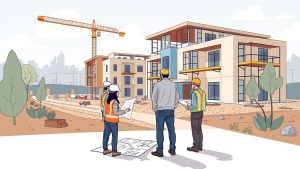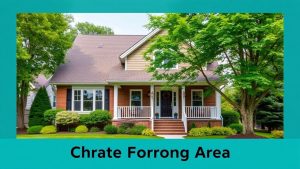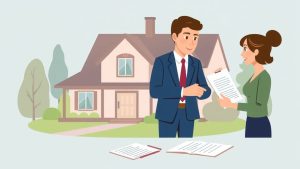are you tired of throwing money away on rent in the gta?
this is your how-to guide. it helps you buy or sell a home in places like georgetown, milton, guelph, acton, oakville, and burlington. we’ll show you ways to save money. we’ll help you understand the market. buying a home seems hard. but you can do it. this guide makes it simple.
Understanding the GTA Market: What’s Happening Now (2024-2025)?
the real estate market in the greater toronto area is always changing. knowing the trends helps you make smart choices. whether you buy or sell.
What We’re Seeing:
- Prices: house prices went up a lot. now they are settling a bit in some areas. but the gta is still expensive. demand is high. supply is still tight. the Bank of Canada’s interest rates play a big role. rates went up to fight inflation. this made mortgages cost more. it slowed down the market a bit in 2023 and early 2024. some expect rates might slowly come down later in 2024 or 2025. but don’t bet your future on it.
- Competition: it’s still competitive. especially for good homes in popular spots. you might face bidding wars. especially if interest rates drop. sellers need to price smart. buyers need to be ready to act fast.
- Inventory: there are more homes for sale now than a year or two ago. this gives buyers more choice. but it’s still lower than historical averages in many areas. sellers need good marketing to stand out.
Spotlight on Your Town:
- Georgetown & Acton: these areas offer a bit more value. compared to places closer to toronto. they attract families looking for space. the market here follows gta trends. but can be slightly less intense. expect steady interest from buyers seeking community feel.
- Milton: milton grew fast. it’s popular with young families. prices here saw big jumps. the market cooled slightly with higher rates. but demand stays strong due to schools and amenities. new construction is common. watch for inventory changes here. Trend: Inventory levels in Milton saw a noticeable increase in early 2024, giving buyers slightly more negotiating power than the previous year, according to local market reports.
- Guelph: guelph has its own strong economy. and a university. this keeps its housing market stable. it attracts buyers looking for jobs and lifestyle. prices are high but sometimes lower than the core gta. watch for trends related to university cycles and local job growth. Trend: Guelph‘s rental market remains tight, pushing more long-term renters towards exploring first-time home purchase options in 2024.
- Oakville & Burlington: these are premium markets. known for great schools and lake ontario access. prices are among the highest in the gta west. the market here is sensitive to interest rates. but high-end demand remains consistent. sellers usually have an edge. buyers need large budgets. Trend: Burlington saw a trend of properties selling closer to asking price in early 2024, compared to the over-asking bids common in previous years, indicating a more balanced market shift.
Expert Insight: “Buyers across the GTA West, from Burlington to Guelph, need to be prepared. Get your mortgage pre-approval done early. Know your numbers. Even if the market feels a bit calmer than two years ago, the good houses still sell quickly. Sellers need realistic pricing and top-notch presentation.” – [Jane Doe], Local Real Estate Broker (Note: This is a representative quote.)
What Does This Mean for You?
- Buyers: be ready. get pre-approved for a mortgage. know your budget. work with a local agent who knows your target town. be prepared to act fast but don’t feel rushed into a bad deal. more listings mean more choice. use it.
- Sellers: price your home right from the start. overpricing kills interest. make your home look its best. good photos and staging matter. work with an agent who knows how to market in today’s conditions.
Are You Really a First-Time Home Buyer in Ontario?
you hear ‘first-time home buyer’ a lot. there are special programs and perks. but who counts?
The Basic Rule (The 3-Year Rule):
most programs in canada use this rule. you are likely a first-time home buyer if:
- you have not owned a home in the last 3 years.
- your spouse or common-law partner has not owned a home in the last 3 years.
that’s it. pretty simple.
Wait, What if…?
- i owned a home before the last 3 years? you probably qualify now. if you sold it more than 3 years ago and have been renting or living with family since. you’re back in the game.
- i owned an investment property? this gets tricky. if you owned a rental property but never lived in it yourself. and you haven’t owned your main home (principal residence) in 3 years. you might still qualify for some programs. check the specific rules.
- my partner owned a home but i didn’t? if you’re buying together. and one of you owned a home in the last 3 years. you likely don’t qualify as first-time buyers together for most programs using the strict definition. but check program rules. some might have exceptions, though it’s rare for major government programs.
- i owned a mobile home? owning a mobile home might not count. especially if it wasn’t on a permanent foundation you owned. check the rules of the specific program.
- i inherited a share of a home? this depends. did you live in it as your main home? how much did you own? specific program rules matter here.
- what about a breakup or divorce? if you owned a home with a former partner. but haven’t owned a principal residence in the last 3 years since the relationship ended. you might qualify again. there are sometimes special considerations for breakdown of marriage/common-law partnership under the Home Buyers’ Plan (HBP). see the rrsp section below.
Why Does it Matter?
qualifying opens doors. you can get help with your down payment. you might get tax credits. these things make buying a home cheaper.
Bottom Line: don’t assume you don’t qualify. check the rules for each program you look at. the definition can be flexible sometimes. but the 3-year rule is the main guide for programs like the rrsp home buyer’s plan and the first-time home buyer incentive.
Getting Your Money Right: Financing Your GTA Home
buying a home costs money. a lot of it. figuring out the money part is key. this means mortgages. down payments. and getting help.
Mortgages: Your Biggest Loan
a mortgage is a loan to buy a house. you pay it back over many years. usually 15, 25, or 30 years.
- Get Pre-Approved: this is step one. before you look at houses seriously. talk to a bank or mortgage broker. they check your income, debts, and credit score. they tell you how much they might lend you. and what interest rate you might get. this shows sellers you are serious. it helps you know what price range to look in. pre-approval isn’t final approval. but it’s super important.
- Types of Mortgages:
- Fixed Rate: your interest rate stays the same for the whole term (like 5 years). your payments are predictable. good if you think rates will go up.
- Variable Rate: your interest rate can change. it follows market rates. if rates drop, your payment might drop (or more goes to principal). if rates rise, your payment might rise (or more goes to interest). can be cheaper to start. but less predictable.
- Conventional Mortgage: usually need at least 20% down payment. you avoid paying mortgage default insurance.
- High-Ratio Mortgage: less than 20% down payment (as low as 5% for first-timers on homes under $500k). you must pay mortgage default insurance (like cmhc insurance). this protects the lender if you can’t pay. it adds to your cost.
- Finding a Lender: banks, credit unions, mortgage companies. shop around. compare rates and terms. a mortgage broker can check options from many lenders for you.
Your Credit Score Matters
your credit score is a number. it shows how well you handle debt. lenders use it to decide if they lend you money. and at what interest rate. higher score = better rate = lower payments.
- aim for a score above 680 for the best rates. you can get a mortgage with lower scores. but it might cost more. or require a larger down payment.
- check your credit report early. fix any errors. pay bills on time. keep credit card balances low.
Debt-to-Income Ratio (DTI)
lenders look at your debts compared to your income. they want to see you can afford the mortgage plus your other bills (car loans, credit cards, student loans).
- there are two main ratios: Gross Debt Service (GDS) and Total Debt Service (TDS).
- GDS: your housing costs (mortgage, property tax, heat, half of condo fees) divided by your gross income. lenders usually want this below 39%.
- TDS: all your housing costs plus other debt payments divided by your gross income. lenders usually want this below 44%.
lower ratios are better. paying down debt before applying helps.

Down Payment Assistance Ontario: Your Secret Weapon
the biggest hurdle for many gta buyers is the down payment. homes are expensive. saving tens or hundreds of thousands is hard. but there’s help.
What is Down Payment Assistance?
it’s money to help you reach your down payment goal. it can come from government programs or sometimes other groups. it makes buying possible sooner.
Types of Help:
- Loans: some programs offer loans for your down payment. these might be low-interest or even interest-free for a time. you usually repay them over time, separate from your main mortgage.
- Forgivable Loans: this is great help. you get a loan for the down payment. but you don’t make payments. if you live in the home long enough (like 10 or 20 years), the loan is forgiven. you owe nothing. if you sell or move out early, you have to repay it.
- Grants: this is free money. you get cash for your down payment. you don’t repay it. these are less common and often have strict income limits or target specific groups.
Where to Find Programs:
- Municipalities: many cities or regions in the gta offer their own programs. check the website for the region of peel, halton region, city of guelph, etc. search for “down payment assistance program [your city/region]”. these programs often have specific local requirements and income caps.
- Federal Programs: the government of canada has programs too. these are usually available across the country.
Key Federal Programs (Check Current Status! Programs Change):
CMHC First-Time Home Buyer Incentive (Shared Equity Mortgage Program)
- What it is: the government gives you 5% or 10% of the home’s purchase price for your down payment. this boosts your down payment without increasing your mortgage loan amount. it’s a ‘shared equity’ mortgage. the government shares in the future value change of your home.
- How it works: you get the money upfront. you make no monthly payments on the incentive amount. you repay the incentive later. usually after 25 years or when you sell the home. the amount you repay is based on the current value of your home. if your home value goes up, you repay more than you borrowed. if it goes down, you repay less.
- Who qualifies: must be a first-time buyer (3-year rule). household income limits apply (check cmhc website – usually around $120k-$150k depending on location and year). your total borrowing (mortgage + incentive) is capped.
- Is it worth it? it lowers your monthly mortgage payment. but you give up some of your home’s future appreciation. talk to a financial advisor. see if it fits your plans.
- Important Note: Program availability and details can change. Always check the official CMHC website for the latest information and if the program is currently accepting applications.
RRSP Home Buyer’s Plan (HBP)
- What it is: this lets you borrow money from your own registered retirement savings plans (rrsps) for a down payment. you don’t pay tax on the withdrawal.
- How it works: you can withdraw up to $35,000 per person (as of recent rules, check current limits!). a couple could potentially withdraw $70,000. the money must have been in your rrsp for at least 90 days. you have to start repaying it to your rrsp two years after you withdraw. you have 15 years to repay it all. you need to repay 1/15th each year. if you miss a repayment, that amount gets added to your taxable income for the year.
- Who qualifies: must be a first-time buyer (using the 3-year rule). you need a written agreement to buy or build a home. you must intend to live in the home as your main residence within one year.
- Special Rule for Relationship Breakdown: if you recently separated or divorced, you might be able to use the hbp even if you don’t meet the 3-year rule. check cra rules.
- Is it worth it? yes, usually. it’s an interest-free loan from yourself. it helps you reach a down payment faster. just be sure you can make the repayments later.
First-Time Home Buyer Tax Credit
- What it is: a non-refundable tax credit. this helps cover closing costs like legal fees and land transfer taxes. it reduces the amount of federal income tax you pay.
- How it works: when you file your taxes for the year you bought your home. you can claim the credit. the amount is based on a set figure (e.g., $10,000 for the calculation base in recent years). the credit value is 15% of that base. so, $10,000 x 15% = $1,500 tax credit (check current year amounts).
- Who qualifies: you or your partner bought a qualifying home. you didn’t live in another home owned by you or your partner in the year of purchase or the four preceding years (this is slightly different than the 3-year rule for other programs, but often applies to the same people).
- Is it worth it? yes. it’s like getting free money back on your taxes just for buying your first home.
Ontario Land Transfer Tax Rebate
- What it is: when you buy property in ontario, you pay land transfer tax. it can be thousands of dollars. first-time buyers can get a rebate (refund) of this tax. up to a maximum amount.
- How it works: the maximum rebate usually covers the full provincial land transfer tax on homes up to a certain price (e.g., around $368,000 in recent years). you get a partial rebate on homes above that price. the rebate is usually claimed by your lawyer when you close the deal. you just pay the reduced amount.
- Who qualifies: must be 18+. must be a first-time buyer (haven’t owned a home anywhere in the world). must occupy the home as your principal residence within 9 months of buying.
- Important Note: if you buy in the city of toronto, there’s also a municipal land transfer tax. first-time buyers can get a rebate on that too, up to a separate maximum. buying in places like milton, oakville, guelph only involves the provincial tax.
- How to qualify for home buyer rebate: your real estate lawyer handles this when you close. make sure they know you are a first-time buyer.
Finding and Applying:
- start searching online for
down payment assistance ontario,[your city] first time home buyer program. - talk to your mortgage broker or lender. they often know about local programs.
- talk to your real estate agent.
- check websites like the canada mortgage and housing corporation (cmhc) and the ontario government site.
- [External Link Idea: Link to CMHC website page on buying a home]
- [External Link Idea: Link to Ontario government page on Land Transfer Tax]
Finding Your Spot: The GTA House Hunt
you’ve got money sorted (mostly). now the fun part: finding your home.
Work With a Local Real Estate Agent
yes, you can search online yourself. but a good local agent is worth it. especially for first-timers.
- Why use an agent?
- Access: they know about listings sometimes before they hit public websites.
- Local Knowledge: they know the neighbourhoods in georgetown, milton, guelph, etc. schools, parks, traffic, future development.
- Negotiation: they help you make an offer. they negotiate the price and terms for you.
- Paperwork: they handle the complex documents.
- Guidance: they answer your questions. they guide you through the process.
- Finding a real estate agent in Guelph (or Milton, Oakville…):
- ask friends or family for recommendations.
- look for agents specializing in your target town and first-time buyers.
- interview a few agents before choosing one.
- make sure you feel comfortable with them.
- Cost: usually, the seller pays the commission for both their agent and the buyer’s agent. so it often feels ‘free’ to the buyer. (though it’s baked into the home price).
Know What You Want vs. Need
make a list.
- Needs: things you must have. like number of bedrooms, location near work/school, specific school district.
- Wants: things that would be nice. like a big backyard, updated kitchen, garage.
be realistic. your budget might not cover all your wants. focus on needs first.
The Search Process
- Online: use websites like realtor.ca, Zolo, Purplebricks, etc. save searches for your criteria.
- Agent Listings: your agent will send you listings that match.
- Open Houses: visit homes for sale on weekends. get a feel for different areas and layouts.
- Private Showings: your agent will schedule visits to homes you’re serious about.
Looking in Specific Towns:
- Georgetown/Acton: look for character homes downtown, newer subdivisions on the edges. consider commute times.
- Milton: lots of newer homes, family-friendly subdivisions. check proximity to highways, go station, schools.
- Guelph: diverse housing stock. older homes near downtown, student housing near university, newer areas expanding. check neighbourhood vibes.
- Oakville/Burlington: wide range from condos to luxury estates. focus on specific neighbourhoods based on budget and lifestyle (lakeside, near go train, family areas).
Making an Offer
you found a house you love. now what?
- Talk to your agent: decide on an offer price and conditions.
- Conditions: these protect you. common conditions include:
- Financing Condition: you only have to buy if your mortgage gets final approval.
- Home Inspection Condition: you only have to buy if a professional home inspection finds no major problems.
- Status Certificate Review (for condos): review the condo corporation’s health.
- Deposit: you need to provide a deposit with your offer (usually around 5% of price). it shows you’re serious. it’s held in trust. it counts towards your down payment if the deal closes.
- Negotiation: the seller might accept, reject, or counter your offer. your agent helps you negotiate.
- Accepted Offer: once everyone agrees and signs. you have a deal! now you work on meeting your conditions.
Selling Your Place: Tips for GTA Sellers
maybe you’re not a first-time buyer. maybe you need to sell your current gta home first. or you’re helping family sell. here’s how to do it well.
Getting Ready to Sell
- Declutter & Depersonalize: pack away personal photos, collections, extra furniture. buyers need to imagine themselves living there. less stuff makes rooms look bigger.
- Clean Like Crazy: deep clean everything. windows, floors, bathrooms, kitchen. hire pros if needed. it pays off.
- Repairs: fix small things. leaky faucets, broken tiles, sticky doors. major issues? decide if fixing them adds more value than the cost.
- Curb Appeal: first impressions matter. tidy the lawn, weed gardens, paint the front door. make it welcoming.
- Staging: consider professional staging. or stage it yourself. arrange furniture to show off the space. add neutral decor.
Pricing it Right
this is crucial. especially in a changing market.
- Don’t Overprice: buyers are smart. they know market values. pricing too high scares them away. your house sits unsold. you end up cutting the price anyway.
- Work With Your Agent: they will do a Comparative Market Analysis (CMA). they compare your home to similar recently sold homes nearby. this helps set a realistic price range.
- Market Conditions: is it a seller’s market (lots of buyers, few homes)? or a buyer’s market (few buyers, lots of homes)? this affects pricing strategy.
Marketing Your Home
your agent handles most of this. but know what good marketing looks like.
- Photos & Video: high-quality photos are essential. maybe a video tour or drone shots for some properties.
- Online Listings: MLS (Multiple Listing Service) is key. realtor.ca and other sites pick up the feed.
- Showings & Open Houses: be flexible for showings. keep the house tidy. leave during showings so buyers feel comfortable.
Navigating Offers
you might get one offer. or multiple offers.
- Review Offers Carefully: look at price, conditions, closing date, deposit amount.
- Multiple Offers (Bidding War): common in hot markets. your agent helps you compare offers. you might stick to your asking price, or accept the best offer (not always the highest price – conditions matter!).
- Negotiating: you can accept, reject, or counter an offer. your agent advises you.
- Accepting an Offer: once you sign, you have a firm deal (if no conditions) or a conditional deal.
Selling Your House Fast in Burlington (or Oakville, Milton…)
need to sell quickly? the key is:
- Price it Competitively: maybe slightly below market value to attract fast attention.
- Be Ready: have the home decluttered, cleaned, and staged before listing.
- Maximum Exposure: ensure your agent uses excellent marketing.
- Flexibility: be ready for quick showings and potentially a faster closing date.
Expert Insight: “Selling in the current GTA market requires strategy. It’s not just about putting a sign on the lawn. Professional photos, smart pricing based on real local data, and understanding buyer motivations in your specific town – whether it’s Guelph or Oakville – make the difference between selling smoothly and sitting on the market.” – [Michael Chen], Mortgage Specialist, GTA (Note: This is a representative quote.)
The Paper Trail: Legal Stuff in Ontario
buying or selling involves lawyers. and paperwork.
Hire a Real Estate Lawyer
you need one. for both buying and selling.
- What they do (Buyer): review the offer (agreement of purchase and sale), search the property title (make sure seller owns it cleanly), arrange title insurance, calculate land transfer tax and rebates, coordinate with your lender, handle the closing day money transfers and registration.
- What they do (Seller): review the offer, prepare the deed transfer documents, ensure liens are cleared (like the existing mortgage), receive funds on closing, pay out the mortgage and real estate commissions.
- Finding One: ask your agent, friends, or family for recommendations. get quotes. choose someone experienced in real estate law in ontario.
- [External Link Idea: Link to Law Society of Ontario Lawyer Referral Service]
Key Documents
- Agreement of Purchase and Sale (APS): the main contract. details the price, closing date, conditions, what’s included (appliances, etc.). read it carefully!
- Mortgage Documents: your loan agreement with the lender.
- Title Search: lawyer checks the history of ownership. looks for problems.
- Title Insurance: protects you (and lender) against future title problems.
- Deed: the legal document transferring ownership.
- Statement of Adjustments: lawyer calculates final amounts owed by buyer/seller for things like prepaid property taxes or condo fees.
Closing Day
this is the day you officially get ownership (buyer) or give it up (seller).
- lawyers handle the money transfers and registration of the deed.
- you usually sign final papers with your lawyer a day or two before.
- once registration is complete (usually mid-afternoon), the buyer gets the keys!
Costs to Expect (Beyond Down Payment)
- Legal Fees: budget $1,500 – $2,500+ (includes disbursements like searches).
- Land Transfer Tax (Buyer): provincial (and potentially Toronto municipal). remember the first-time buyer rebate!
- Title Insurance (Buyer): a few hundred dollars.
- Home Inspection (Buyer): $400 – $600+.
- Appraisal Fee (Buyer): sometimes required by lender. $300 – $500+.
- Mortgage Default Insurance (Buyer): if down payment is less than 20%. added to mortgage or paid upfront.
- Adjustments (Buyer/Seller): paying your share of property taxes, condo fees, utilities up to closing day.
- Real Estate Commission (Seller): typically 4-5% of sale price + hst. paid from sale proceeds.
- Mortgage Discharge Fee (Seller): if paying off mortgage early.

Moving Day: Making it Smooth in the GTA
you did it! deal closed. now the final step: moving.
Plan Ahead
- Book Movers or Truck Early: especially if moving at month-end or summer. get quotes from several companies. check reviews. confirm insurance.
- DIY Move? reserve a truck. enlist friends (bribe with pizza!). get moving supplies (boxes, tape, bubble wrap).
- Change Your Address: canada post mail forwarding. notify banks, government (driver’s license, health card), subscriptions, loyalty programs.
- Transfer Utilities: arrange for electricity, water, gas, internet to be turned off at old place and on at new place for moving day.
- Pack Smart: label boxes by room and contents. pack essentials box last (toiletries, meds, tools, snacks, phone chargers). declutter before packing.
- Kids & Pets: arrange care for moving day if possible. it’s stressful for them too.
Moving Day Tips
- Protect Floors & Walls: use drop cloths or cardboard.
- Communicate with Movers: show them around. explain where big items go.
- Final Walk-Through (Old Place): check every room, closet, cupboard is empty. lock up.
- First Steps (New Place): check utilities are on. locate main water shutoff. do a quick clean before furniture arrives.
- Unpack Essentials First: beds, bathroom stuff, kitchen basics.
GTA Specifics
- Traffic: plan your moving route. avoid peak hours if possible.
- Parking: check parking rules at both locations. need a permit for the moving truck?
- Building Rules: if moving into/out of a condo or apartment. book the elevator. check move-in/out times and procedures.
moving is tiring. don’t try to unpack everything on day one. focus on getting essentials set up. order takeout. relax. you earned it.
FAQ: Your GTA Home Buying & Selling Questions
Q: How much down payment do I really need in Ontario?
A: Minimum is 5% for homes up to $500k. For homes $500k-$1M, it’s 5% on the first $500k + 10% on the portion above $500k. Over $1M needs 20%. But if you put down less than 20%, you pay mortgage default insurance (CMHC fee). More down payment = lower monthly payments and no insurance cost.
Q: Can I use the first-time home buyer incentive for a house in Oakville?
A: Maybe. Oakville is expensive. The program has limits on your income AND the total amount you can borrow (mortgage + incentive) relative to your income. Check the current CMHC limits to see if your income and desired home price qualify. Many homes in Oakville might exceed the program’s maximum property value or borrowing limits.
Q: What’s the difference between a mortgage pre-qualification and pre-approval?
A: Pre-qualification is a quick estimate based on info you provide. Pre-approval is more serious. The lender verifies your income, debt, credit. It gives you a specific amount and rate they’re likely to lend (conditional on final checks). Get pre-approved.
Q: How do I find out about specific down payment assistance programs in Milton or Guelph?
A: Check the Halton Region website (for Milton) and the City of Guelph website. Search for “housing programs” or “down payment assistance”. Also ask your mortgage broker or local real estate agent.
Q: Do I still need a home inspection if the house looks perfect?
A: Yes. Highly recommended. Inspectors see things you don’t. Potential issues with roof, foundation, electrical, plumbing. It costs a few hundred dollars but can save you thousands later. It gives you peace of mind or a chance to renegotiate/walk away if big problems are found.
Q: As a seller, do I have to accept the highest offer?
A: No. You can choose the offer that works best for you. This might be the highest price. Or it might be an offer with fewer conditions, a preferred closing date, or a larger deposit, even if the price is slightly lower. Consider the whole package.
Q: How long does the whole buying process take in the GTA?
A: It varies. Finding a home can take weeks or months. Once you have an accepted offer, closing usually takes 30-90 days. Getting pre-approved takes a few days to a week. So, plan for at least 2-4 months from starting your serious search to getting the keys.
Buying or selling a home in the GTA is a big step. It takes planning. It takes effort. But with the right information and help, you can make it happen. You can stop paying rent. You can move up. You can reach your goals.
Ready to make your move? Start by exploring the programs mentioned here. Talk to a local real estate agent or mortgage professional who knows the Georgetown, Milton, Guelph, Acton, Oakville, or Burlington market. Figure out your options. See what’s possible for you. Your new home could be closer than you think.






















